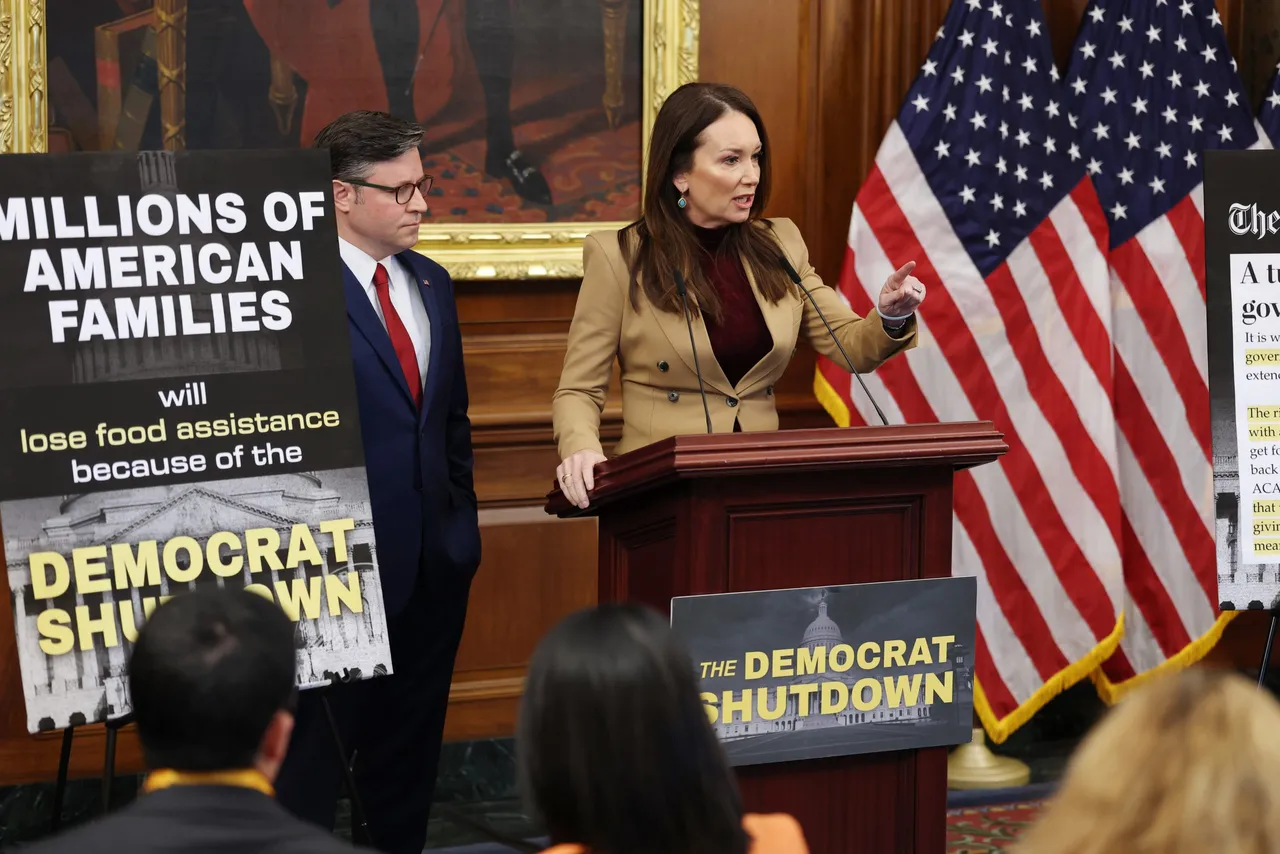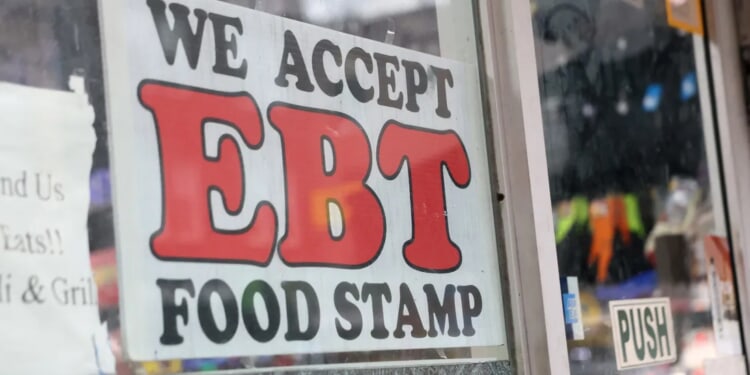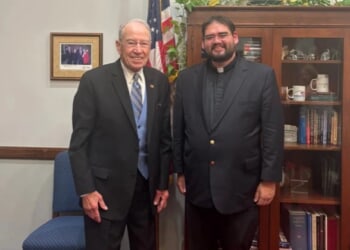The Supplemental Nutrition Assistance Program (SNAP), facing its first-ever funding lapse on Nov. 1 amid the ongoing government shutdown, is fraught with systemic fraud and abuse.
Nearly a month into the shutdown, Democrats continue to block a short-term funding resolution, putting SNAP benefits for roughly 42 million Americans — about 12.5% of the population — at risk. The standoff has also reignited questions over whether the program is truly serving those most in need or being exploited by bad actors.
“Roughly one in every ten dollars spent on food stamps in this country is improper,” Hayden Dublois, data and analytics director for the Foundation for Government Accountability, told the Daily Caller News Foundation. “Put another way, as policymakers are grappling with food stamp benefits running out due to the government shutdown, the resources that will be lost to improper food stamp spending this year could more than cover all of the legitimate food stamp payments for the entire month of November.” (RELATED: New Data Completely Destroy Democrats’ Shutdown Talking Point)

U.S. Agriculture Secretary Brooke Rollins speaks alongside U.S. Speaker of the House Mike Johnson (R-LA) during a news conference on Capitol Hill on October 31, 2025 in Washington, DC. (Photo by Anna Moneymaker/Getty Images)
SNAP is a federally funded program administered by the U.S. Department of Agriculture (USDA) through the Food and Nutrition Service (FNS).
Participation in SNAP has surged over the past two decades, rising from 17.2 million monthly participants in 2000 to 41.7 million in 2024. During the same period, annual spending ballooned from $28.5 billion to nearly $100 billion, according to USDA data.
While the federal government sets benefit levels and core rules, states are responsible for determining eligibility and issuing Electronic Benefit Transfer (EBT) cards, and have the primary responsibility for detecting and addressing fraud.
In fiscal year 2023, 11.7% of SNAP benefits— or about $10.5 billion — were paid out improperly, according to the USDA, with fraud accounting for a portion of those losses through both recipient and retailer violations.
Alaska, New Jersey, South Carolina, Delaware and Washington, D.C. recorded the highest error rates, at 60.37%, 35.7%, 22.57%, 22.8% and 20.26% respectively. While the national error rate slightly improved in 2024, it remained elevated at 10.9%.
Every dollar of SNAP benefits lost to fraud — including identity fraud, account takeovers, eligibility misrepresentation and EBT card trafficking — generates an additional $3.72 in costs for agencies, according to LexisNexis.
“Every one of these billions of dollars that are lost to waste, fraud, and abuse represents resources that can’t go towards the most vulnerable Americans, like kids in poverty,” Dublois said. “From EBT trafficking schemes to states simply failing to verify eligibility, the full extent of food stamp fraud is far-reaching.”
SNAP’s eligibility rules have also come under scrutiny.
As of 2023, 11% of participants were foreign-born, including 6% naturalized citizens, 1% refugees, and 3% other noncitizens, according to USDA data. Another 6% were citizen children living with noncitizen adults. Meanwhile, the Congressional Budget Office has linked roughly $15 billion in food stamp spending to the influx of foreign nationals entering the U.S., largely under the Biden administration.
The One Big Beautiful Bill Act, signed into law by President Donald Trump in July, included provisions aimed at reducing abuse and fraud in the system, such as expanded work requirements to cover more able-bodied adults and requiring states to pay a portion of the benefit costs if their error rate exceeds 6%. The law also limits SNAP eligibility to U.S. citizens and lawful permanent residents, eliminating food assistance for other immigrant categories.
“Tackling food stamp improper payments can and should be a bipartisan issue — and is vitally important, now more than ever,” Dublois said.
Beyond fraud and abuse in the system, critics have raised concerns about how SNAP benefits are spent. As of 2016, SNAP households spent 20.5% of their benefits on sweetened beverages, prepared desserts, salty snacks and sugars, compared to 17.4% among non-SNAP households. More than a dozen states have responded by proposing or implementing restrictions on using SNAP benefits for sugary drinks and other non-nutritious items.
The USDA has said that no benefits will be issued on Nov. 1, but a federal judge on Friday ordered the Trump administration to continue funding the program during the shutdown through a $5 billion contingency fund. The administration argues the fund cannot be legally used, and USDA Secretary Brooke Rollins noted that even if it were, it would not cover even half of November’s benefits, according to CBS News.
All content created by the Daily Caller News Foundation, an independent and nonpartisan newswire service, is available without charge to any legitimate news publisher that can provide a large audience. All republished articles must include our logo, our reporter’s byline and their DCNF affiliation. For any questions about our guidelines or partnering with us, please contact licensing@dailycallernewsfoundation.org.










![Florida Officer Shot Twice in the Face During Service Call; Suspect Killed [WATCH]](https://www.right2024.com/wp-content/uploads/2025/12/Inmate-Escapes-Atlanta-Hospital-After-Suicide-Attempt-Steals-SUV-Handgun-350x250.jpg)






